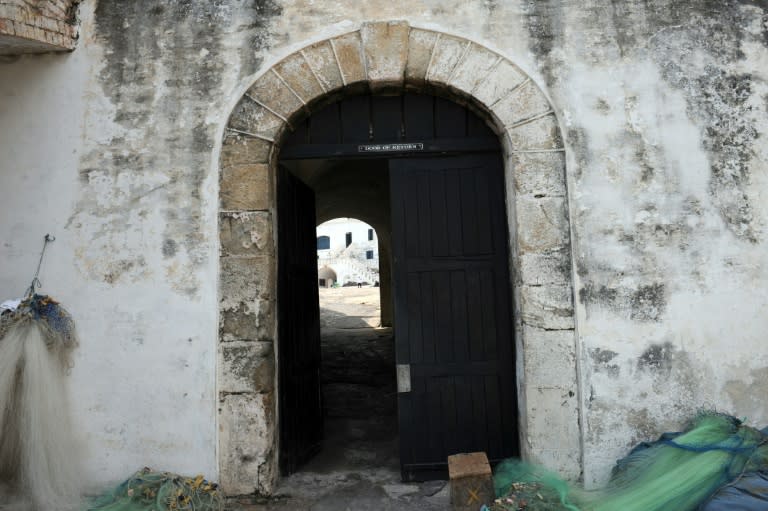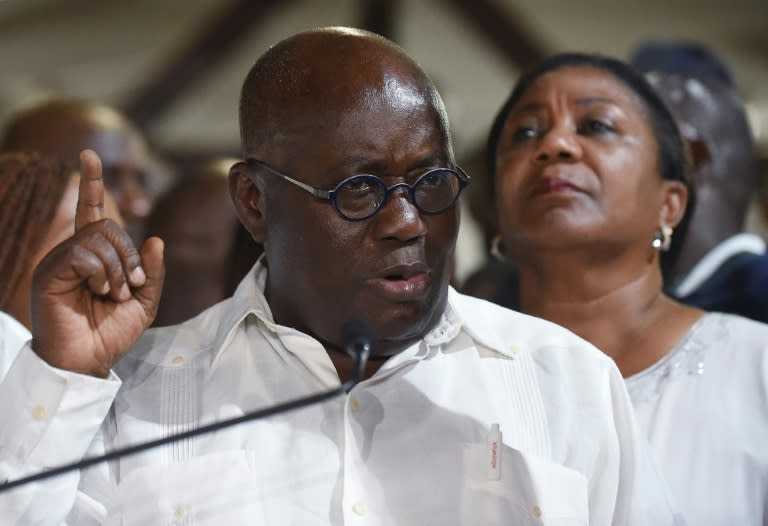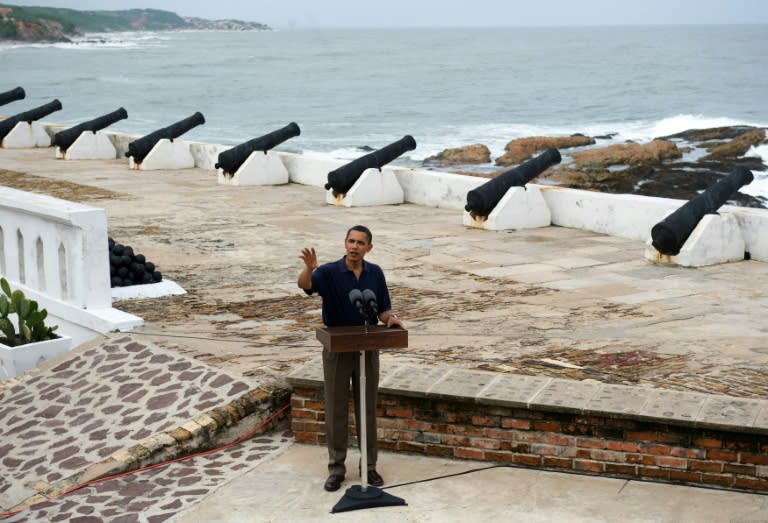Ghana urges people of African heritage to 'come home'
Sicley Williams was ready to escape what she found an unfriendly climate in the United States and take a leap of faith, leaving her native Chicago for Ghana. She had previously visited the West African nation on holiday and when she returned in 2017 found work practising yoga and offering spa services. "The climate of the US was just really negative, especially the racial climate," said Williams. In Ghana, that tension disappeared almost entirely, she added. "It's much more pleasant to be in a place where you feel more accepted, you feel freer, you feel more open to being who you are and, of course, you are around people who look like you." Williams has become an unofficial ambassador of a growing movement encouraging other African-Americans to move to Ghana. President Nana Akufo-Addo has designated 2019 the "Year of Return" both to commemorate the resilience of Africans forced into slavery and to encourage their descendants to "come home". "We know of the extraordinary achievements and contributions they (Africans in the diaspora) made to the lives of the Americans, and it is important that this symbolic year, 400 years later, we commemorate their existence and their sacrifices," he said last September. His timing was based on the first recorded landing of a ship carrying Africans in Virginia in August 1619, said by historians to be an English warship that had plundered a Portuguese slaver. Celebrities including supermodel Naomi Campbell and actors Idris Elba and Rosario Dawson kicked off the year-long programme by attending the Full Circle Festival in Accra in late December. - 'Year of Return' - Ghana is still dotted with dungeons and castles established during the slave trade, which serve as a powerful reminder of the past to educate citizens and foreign visitors about slavery. US former president Barack Obama and his family visited the Cape Coast Castle in 2009 and described it as a place of "profound sadness". "It reminds us that as bad as history can be, it's also possible to overcome," he told reporters during the tour of the landmark, with its infamous "door of no return" in the dungeon. Akufo-Addo's invitation isn't the first from Ghanaian presidents. In 2000, Ghana passed legislation designed to make it easier for people from the African diaspora to live and work in the country. Akufo-Addo has pledged to simplify the visa process. Tourism Minister Catherine Abelema Afeku is organising music and culture festivals, including Ghana independence celebrations in March. There will also be Panafest, a theatre festival aimed at bringing together Africans on the continent and in the diaspora "around the issues of slavery". - Support and development - Christabel Dadzie hopes that 12 months of celebration will inspire Ghanaians in the diaspora to move back. After a decade working in the United States, Dadzie founded the Ahaspora Young Professionals to help those in the diaspora make the transition to Ghana. With a network of about 2,000 people, Dadzie and others help field questions like how to get a job, where to recruit a babysitter or even buy household goods. The group also offers community services such as mentoring high school students in professional development and has raised funds and donations for disaster relief. Seeing those in the diaspora coming to Ghana "will be great for our tourism and camaraderie, getting to know other people who are related to the country," said Dadzie, who is planning one of the events of the celebration. "They come home and do amazing entrepreneurial things so actually thrive here." - 'Come home' - Entrepreneur Dedo Azu said there were obvious challenges to moving to Ghana, including having to pay one or two years' rent up front and a sense of alienation. After 11 years in Canada it took Azu some time to find her feet. But she had a breakthrough as the owner of Tea Baa, one of Accra's most popular bars, serving ice cold drinks in Mason jars. Those who are determined to "come home" can carve out a living, said Azu. "If you come, you will find a little space to do what you want or make it better. "If we all came back and brought what we have, maybe we would really have something to show off," said Azu, taking a sip of an iced Earl Grey tea. She understands why the government is inviting people back. "It boils down to a simple message, 'We love you, come home'," she said.




